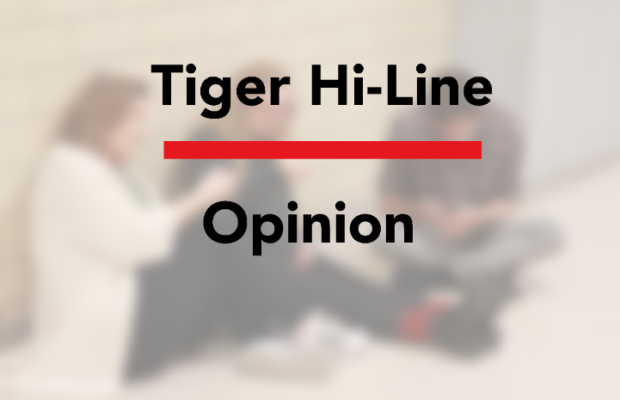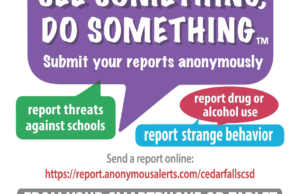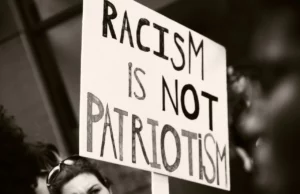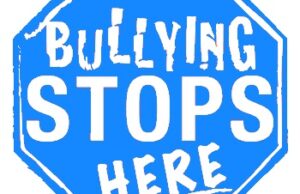Racial microagressions leave big impacts
By Jade Pham on December 9, 2016
By Jade Pham
10. This is where it started. 10 was the age that I began to realize my race was going to have a big effect on my life, and not in a good way. It occurred to me when I was in the fifth grade, that my appearance, my culture and the language of which I didn’t even speak, was all apart of the negative aspects of how people perceived me.
I guess the first time I truly felt self-conscious about myself and my ethnicity was at the mall with a close friend of mine. We were about 10, and we were walking around by ourselves until we met up with her mom again. I distinctly remember buying a huge bag of popcorn, the kind that you get at the fair in a large, cylindrical plastic bag. I didn’t even care that it was about half the size of me, and I could never finish it all by myself, even if I tried.
As we were going down the escalator, a group of teenage boys, whom I didn’t even know, were on the escalator going up. I didn’t pay any attention to them until we passed, when one of them spoke a bunch of gibberish nonsense in my face. I glanced back at them, not quite understanding what had happened right away.
At first, I thought they were making fun of me for carrying and eating such a large bag of popcorn, and I just didn’t hear what they said quite correctly, but it wasn’t until my friend yelled some sort of snide remark in defense for me, that I finally realized what had happened.
These boys weren’t making fun of me because of my oversized bag of popcorn; they were making fun of me because I was Asian. They made fun of me for a language that I didn’t even speak, and because “jokes” like that were funny to them. It didn’t matter how old I was or how I felt, because it was just a “joke.”
I can’t remember exactly how I felt after that, but I remember the experience sticking with me, like it had been imprinted into my brain. I couldn’t really shake it or forget it.
That might’ve been the start of my realization that who I am, was going to play a role not only in how others perceived me, but how I perceived myself. I began to question my facial features and everything about myself in general.
My eyes became my biggest insecurity. I began to ask myself questions like: Are my eyes too small? Are they too squinty? How can I make them appear bigger? And it wasn’t just my eyes that I started to despise. It was also my naturally tanned skin. The things I couldn’t control or change were the things I wished I could.
Without knowing, I was whitewashing myself. I looked at myself, and then I’d look at my friends, and I picked out the physical features that separated me from all of them. My monolids, my yellowish-tan skin, my thick black hair were completely opposite to their big eyes, white skin and blonde hair.
Because of my differences, I’d sit in front of the mirror for up to an hour, trying to figure out how to change my appearance. I thought stretching my eyes open just a little bit wider would somehow make them stay that way, and my eyes wouldn’t be so small anymore. I thought using whitening cream would make me the same as everybody else.
It took me a long time to accept that I couldn’t just make myself look a way, when the only way I could look, is like me. I couldn’t really change the way I looked without being “fake” or “artificial.”
In the end, I could only be myself, and all I could do was embrace my features and accept that my race did not separate me from others negatively, but instead made me stand out positively. And that was a good thing.
Search
News

Rocket League team advances to Nationals
Rusty Sheehan | May 31, 2024A little while ago, the beginning of the esports season was covered by the Tiger Hi-Line, including the rocket league team who, at the time, was in the process...
-
 Lana Greenleaf | May 29, 2024
Lana Greenleaf | May 29, 2024
HCC technology camps can expand young learners’ coding knowledge coding, more
-
 Lana Greenleaf | May 21, 2024
Lana Greenleaf | May 21, 2024
-
 Hanna Lane | May 21, 2024
Hanna Lane | May 21, 2024
-
 Lana Greenleaf | May 15, 2024
Lana Greenleaf | May 15, 2024
Incoming seventh graders can prepare for junior high with Boost
-
About
The Tiger Hi-Line Online is an award-winning creation produced by the journalism students at Cedar Falls High School. We produce written, photographic and video stories of the latest news around campus as well as teen-centered topics from around the world. The content is created entirely by students, primarily from the newspaper, broadcast and yearbook courses at Cedar Falls High School. Please email any story ideas to hilinestaff@gmail.com.Tags
2018-2019 2019-2020 alayna yates AOTW art artist of the week athlete of the week basketball books Cedar Falls High School CFHS choir Christmas college COVID donald trump Eden Davis entertainment Erin McRae feature Football games halloween home homecoming Iowa Jaden Merrick jared hylton movies music news opinion our view politics prom robotics Sabine Martin Sal Engle Skylar Promer Sophia Schillinger sports state Swimming video games volleyball




You must be logged in to post a comment Login